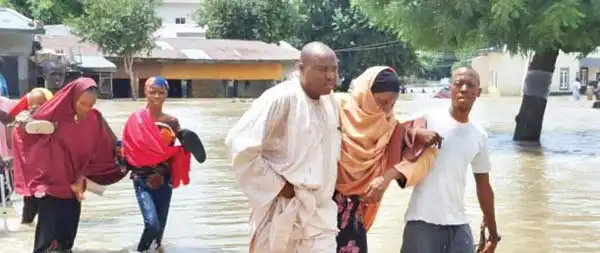Blitz Bureau
Human-caused climate change worsened floods that have killed hundreds of people and displaced millions in Cameroon, Chad, Niger, Nigeria and Sudan this year, according to a study.
The intense rainy season has unleashed a humanitarian crisis across large areas of the Sahel region bordering the Sahara desert. A new analysis by the World Weather Attribution (WWA) network of scientists found warming driven by the use of fossil fuels had exacerbated the flooding in Sudan, according to an AFP report carried by an Indian news portal.
The researchers also said climate change would have made this year’s torrential rains around five to 20 per cent more intense across the Niger and Lake Chad basins, citing a previous WWA study of similar floods in 2022.
“This is only going to keep getting worse if we keep burning fossil fuels,” said Clair Barnes from the Centre for Environmental Policy at Imperial College London. Speaking at a briefing ahead of the study’s publication, she said such downpours “could happen every year” if global temperatures increase to two degrees Celsius (35.6 Fahrenheit) above pre-industrial levels. “It’s pretty serious,” she said.
Global warming is not just about rising temperatures – the extra heat trapped in the atmosphere and seas has knock-on effects and can result in more intense downpours and storms.
The researchers said there was a clear link between the extreme rainfall and a warming planet. The scientists used modelling to compare weather patterns in our world and one without human-induced warming, and found that month-long spells of intense rainfall in Sudan had become heavier and more likely due to climate change.
At the current 1.3 degrees Celsius of warming, similar periods of rainfall are expected to occur once every three years, and have become about 10 pc heavier due to climate change.

































